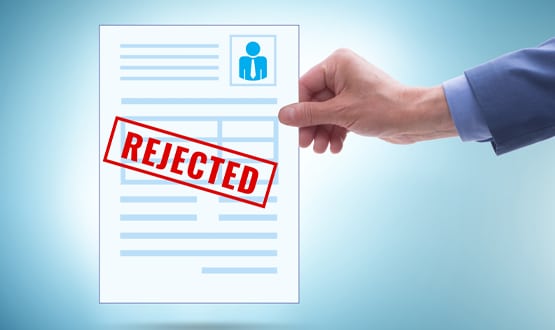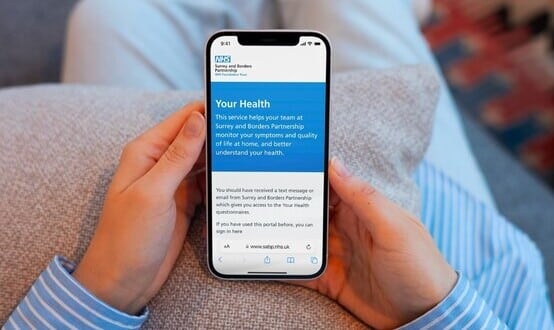Joe’s view: of a £40 million present for the NHS to open
- 14 December 2016

Memory experts say that most of us remember little before our third birthday. Usually, early memories are very powerful memories of either joyful or traumatic occasions.
Searching my own memory, I can go back as far as 1964. I think I have a memory of my third birthday party. There is a black-and-white TV in the corner.
It is switched on, and after a few minutes it warms up enough to show grainy black-and-white pictures. Then all the grown-ups are crying and, unfortunately, uncle Tony, God rest his soul, sits down on my birthday cake on the coffee table.
I don’t know what’s going on, except that my birthday party is ruined and no-one is paying any attention to me. Looking back, I realise that the grown-ups are receiving the news that American President John F. Kennedy is dead.
The Johnny Seven one man army
The next thing I can remember is from exactly one month later. It’s Christmas morning. I can smell the Christmas tree. It’s still dark.
My big sister, Christine, then aged eight – and sadly no longer with us – sneaks into my bed. We try to contain our excitement and wonder how long we will have to pretend to be asleep.
Then, the unmistakable sound of my father going downstairs. Christine already knows the routine, this being her eighth Christmas. “Has Santa been? Has he been?” She shouts. My father replies: “Yes, he’s been.”
We run dementedly down the stairs in our jim jams. Christmas stockings bulging with goodies lie by the fireplace where we hung them last night and presents are scattered at the base of the tree. Joy unconfined.
But, hang on a minute, something is wrong. I scan the presents. The massive box I was hoping for is missing. I check again. I unwrap everything and there’s some really good stuff in there; but not the one thing I wanted.
The Johnny Seven one-man army machine gun. The Johnny Seven was the best toy America had to offer. It had been heavily promoted on television and was what every small boy wanted.
Thinking back, I probably hadn’t put it in my letter to Santa because – back in 1964 – Christmas advertising didn’t start until December. My parents always insisted the letters were written and posted to Santa by November.
Not just a gun, the ultimate US weapons platform
The Johnny Seven was no ordinary toy gun. It was a platform carrying seven very different ways to kill a man, including a bayonet, a detachable pistol, rocket launcher and grenade launcher, all in one massive package that clipped seamlessly together.
Nowadays, it would probably be considered politically incorrect. I was heartbroken. To make matters worse, my best friend, Graham, appeared later that morning, brandishing his very own Johnny Seven.
It looked just as good as it did in the advert, with all seven methods of killing beautifully combined into a single solution. Something was triggered in me; not a lifelong interest in military equipment, but a love of things that could do more than one thing and do them all elegantly.
The next time I had that feeling was when I bought my first Swiss Army knife and again when I got my first iPhone.
A difficult year for America
Now, America has had some poor press this year, what with the bitter presidential election and the unexpected election of Donald Trump.
I am reminded of the 1988 vice-presidential debate, when Senator Dan Quayle unwisely compared himself with the late, lamented John F. Kennedy.
He watched his political career explode in just a handful of words when his opponent Senator Lloyd Bentsen hit back with the most withering remark in the history of politics: “Senator, I served with Jack Kennedy. I knew Jack Kennedy. Jack Kennedy was a friend of mine. Senator, you're no Jack Kennedy.”
I think it is probably fair to say that Donald Trump is no Jack Kennedy. So have the Americans taken leave of their senses? Temporarily, maybe, some. But not all Americans.
With some positives for the NHS…
The Americans I have met this year have all been honest and intelligent people who have made decent contributions to the cause of NHS IT.
Pitt Turner, co- founder of the Uptime Institute came to this year’s CCIO Network Summer School and then urged us to go back to our organisations and work out how we would make things work better.
Do it on Monday morning, he said. Work out what can be done before we meet again in Manchester in 2017. Many of us took that to heart. Thank you, Pitt.
Another significant American contribution was Bob Wachter’s refreshingly honest and beautifully written review of health IT in the NHS acute sector.
He was candid in his assessment. We aren’t spending enough money to digitise healthcare and be paperless by 2018. We are only spending enough money to go digital in a few places.
If you are going to spend a limited amount of money, at least spend it in places where you know it won’t be wasted and from where lessons can be learned and shared.
Obviously, many organisations who missed out were unhappy with the subsequent ‘digital centres of excellence’ or ‘exemplars’ programme, but frankly his logic was inescapable. Thank you, Bob.
EMRs and ERMs and why the two shouldn't get conflated
The other significant American contribution came from Robert Wah, president of the American Medical Association. He also came to Summer School, this time to explain how ERM (Enterprise Resource Management) software and EMR (Electronic Medical Record) software have, in healthcare, become conflated.
The effect has been to shift resource management activity onto the clinician. An epiphany for me. My EPR feels cumbersome because it wants me to do things I am overqualified to do. Thank you, Robert.
So, what if I only had to do the doctory bits? And other software could do the admin and resource management and travel expenses and navigation and dictation and correspondence and email recording patient preferences?
There’s cheap – and getting cheaper all the time – software that can do all this stuff, right? Could we stich it all together on a cheap, common platform so that I have the tools I need to get through the day all in one place? The Johnny Seven One Person Health Service tool.
All I want for Christmas: is an open NHS IT platform – and £40 million
Of course, it would need some time and money to do the stitching together bit. Ewan Davis and Tony Shannon, two of the most knowledgeable figures in UK health IT, recently suggested that maybe 1% of our projected national spend on NHS technology over the next five years could be spent on this way of doing things.
The projected spend is £4 billion. So why not take that 1% – £40 million – and spend it on their proposed Open Platforms Challenge Fund?
Maybe we could find a way to make a world class health IT system at a price we can afford? What have we got to lose?
All I want for Christmas is £40 million.
I wish you a Merry Christmas and a politically sane New Year.
About the author: Joe McDonald is a practising NHS consultant psychiatrist and CCIO at Northumbria, Tyne and Wear NHS Foundation Trust. He is also chair of the CCIO Network. Follow him on Twitter @CompareSoftware




